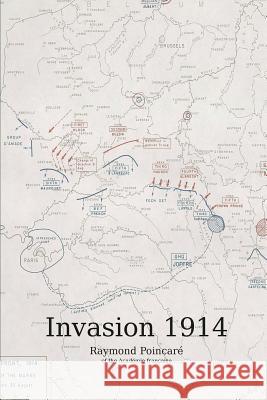The Invasion 1914: In the Service of France » książka
The Invasion 1914: In the Service of France
ISBN-13: 9781512302967 / Angielski / Miękka / 2016 / 310 str.
This volume is part of a series of memoirs covering the period from 1912 to the end of the Great War. Specifically, it covers events from the outbreak of war until the new year. Beginning as the German armies roll into Belgium, Raymond Poincar', the President of the Third French Republic, tells the story of the military, political and diplomatic crises that assailed the government and almost overwhelmed the country. We see the political leadership attempt to deal with all the neglect and lack of preparation that they themselves allowed to develop, even as Germany turned herself into a military machine and challenged France time and again on the fringes of her empire and in the world of diplomacy. He gives us a glimpse into the workings of government and exposes its weaknesses. Amongst these, the fact that the political and military leadership was so distinct and separate, so formally bound by constitutional rules that, even in times of extreme national crisis, perhaps imminent death as a nation, the President and his leading ministers were both pitifully powerless to influence military events, and painfully ignorant of them as they unfolded. The German armies rampage deeper into France by the day, the allied armies fall back in the face of their massed ranks. Men die in their tens of thousands, rushing over open ground to attack in the teeth of artillery and machine gun fire. The government flees to Bordeaux. Cracks appear in the retreating lines: the allied armies are outflanked, almost overwhelmed, at the very point of defeat and disaster. The President and his ministers, almost as much in the dark as the French people, must depend on the phlegmatic and stoical leadership of General Joffre, the Commander in Chief, and the bravery of the armies. Yet, somehow, France recovers from the devastating blow to regain her poise quickly enough to win a great victory at the Marne, and drive the invaders back from Paris. We also learn of the astonishing diplomatic horse-trading of the allied nations, the naked ambitions of the great powers, the concessions demanded by neutral powers for their allegiance, the unprincipled bartering of nations and peoples as the death-struggle of Empires reaches its critical peak - the shape of future European conflicts are already emerging as early as the first months of the Great War.
Zawartość książki może nie spełniać oczekiwań – reklamacje nie obejmują treści, która mogła nie być redakcyjnie ani merytorycznie opracowana.











